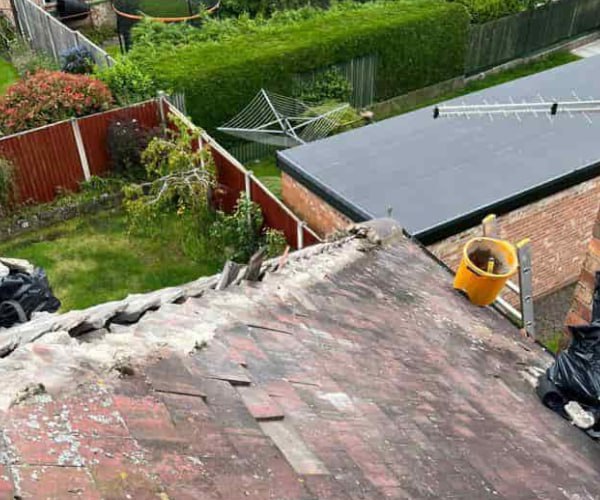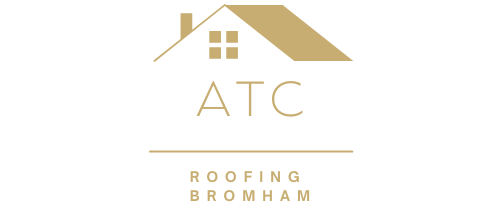Warning Signs of Structural Problems in Slate Roofs
Slate roofs are known for their strength, natural beauty, and exceptional lifespan. However, like any roofing structure, they can develop issues over time—particularly if underlying structural components begin to weaken. Identifying early warning signs is essential for preventing more serious damage and maintaining the overall stability of your home. For property owners in Bromham, Bedfordshire, understanding what to look out for can help protect both the roof and the safety of the property. With the expertise of ATC Roofing Bromham, homeowners can benefit from knowledgeable assessment and professional solutions when signs of structural concern appear.
Why Structural Integrity Matters in Slate Roofing
Slate is an incredibly durable material, but it relies heavily on the supporting structure beneath it. The battens, rafters, fixings, and overall roof frame must be in good condition to hold the weight of the slate securely. When these components begin to fail, the roof can quickly become compromised.
Recognising structural warning signs early ensures that issues can be addressed before they escalate.
Sagging or Uneven Roof Lines
One of the clearest indicators of a structural problem is a roofline that appears to sag or dip. Because slate roofs are naturally rigid, any downward movement suggests that the support structures beneath the surface may be weakened.
Homeowners in Bromham, Bedfordshire should take particular note of:
- A visible dip in the middle of the roof
- A wave-like appearance along the ridge
- Uneven slopes when viewing the roof from a distance
These signs may indicate failing rafters or damaged internal supports. ATC Roofing Bromham can assess the structure to determine the cause and recommend appropriate corrective work.
Loose or Slipping Slates
While individual slates can slip due to age or fixings failing, widespread slipping is often a symptom of deeper structural weaknesses. If the battens holding the slates in place start to deteriorate, multiple slates may shift out of position.
Common indicators include:
- Gaps where slates have moved
- Slates appearing crooked or misaligned
- Repeated slate movement even after previous repairs
This type of activity suggests that the underlying framework needs attention and should not be ignored.
Internal Signs of Movement or Stress
Structural issues do not always reveal themselves externally first. Inside the property, there may be several indications that the roof structure is under strain. These include:
- Cracks appearing in ceilings or upper internal walls
- Doors or windows sticking due to shifting frames
- Uneven internal ceilings or bulging plaster
Properties in Bromham, Bedfordshire with older slate roofs may experience this as natural settling occurs. However, if changes appear suddenly or worsen over time, it is important to seek a professional assessment from ATC Roofing Bromham.
Bowing or Distorted Roof Timbers
In the loft, visible movement or bending of the timber framework is a major red flag. When rafters or purlins bow under pressure, it may signal that the structure is no longer capable of supporting the roof covering effectively.
Homeowners should look for:
- Split, bowed, or sagging rafters
- Damp or decayed timber
- Previous reinforcements that have begun to fail
These issues can compromise the entire roof and may require significant strengthening work.
Water Ingress and Hidden Structural Weakness
Even small leaks should be treated seriously. Water penetration is one of the leading causes of timber decay, which directly affects structural integrity. If moisture reaches the supporting wood, the roof can weaken over time.
Signs of concern include:
- Persistent damp patches
- Dripping during rainfall
- Rotting timber in the roof space
- Damp odour or mould around roof junctions
In Bromham, Bedfordshire, changing weather conditions can make slate roofs vulnerable to moisture if structural weaknesses are already present. ATC Roofing Bromham can identify the root cause and advise on the best course of action.
Displaced Ridge or Hip Lines
The ridge and hips are vital structural points in a slate roof. Movement in these areas often indicates a deeper problem affecting the load-bearing framework.
Watch for:
- Ridge tiles separating or appearing misaligned
- Visible movement in the hip line
- Cracks forming along mortar joints
Such signs suggest structural changes that require immediate attention to prevent further deterioration.
Conclusion
Structural issues in slate roofs can develop gradually or appear suddenly, but recognising the warning signs early is crucial for preventing major damage. From sagging rooflines and slipping slates to internal cracks and timber distortion, each indicator points to potential weakness within the roof’s framework. For homeowners in Bromham, Bedfordshire, the experience and technical knowledge of ATC Roofing Bromham provide reassurance and professional guidance to protect the longevity and safety of their slate roofs.
Call us on: 01234 982 391
Click here to find out more about ATC Roofing Bromham
Click here to complete our contact form and see how we can help with your roofing needs.

